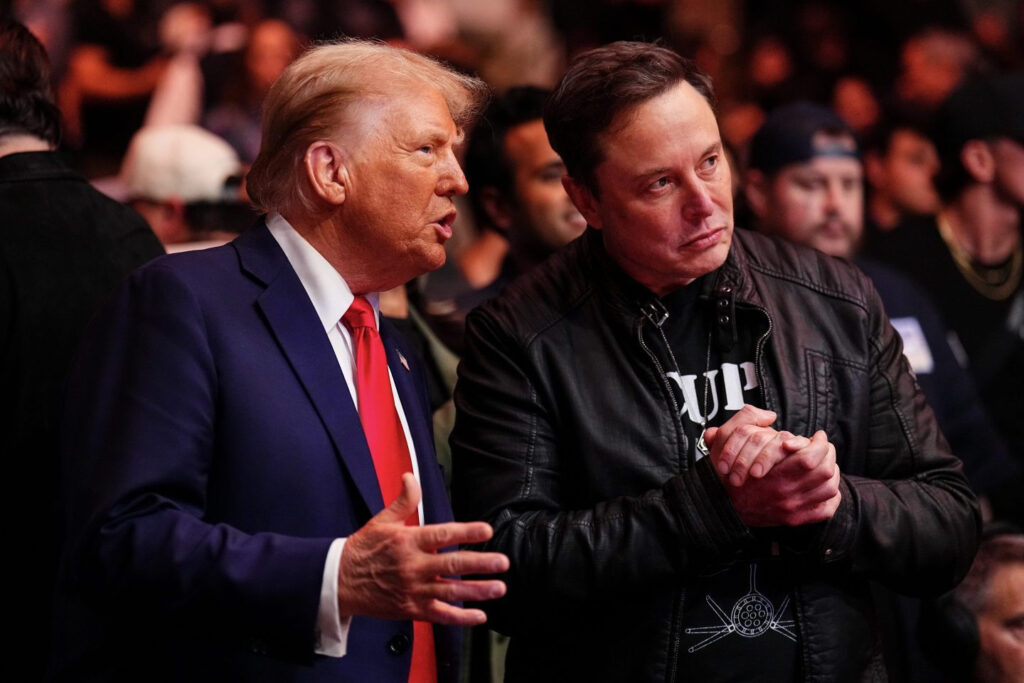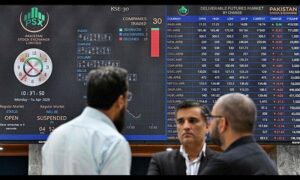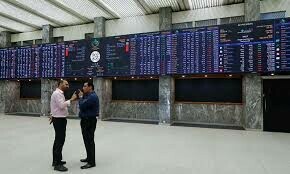PUBLISHED
January 19, 2025
Just days away from stepping into the White House for his long-awaited return, President-elect Donald Trump has already given the world a taste of his trademark chaotic foreign policy and his emboldened “America First” ambitions.
With a retinue of ultra-rich billionaires and tech moguls with deep pockets, Trump’s America is set to send ripples across a world already reeling from wars, climate crises and the erosion of democratic values.
With even allies on tenterhooks and adversaries keeping a close eye, Trump has already launched a full-throated assault on “liberal internationalism,” a rules-based order that the US, ironically, has long wielded against its rivals for daring territorial expansion.
The Republican leader’s latest gambit includes the suggestion of deploying military or economic leverage to claim Greenland—a move that rattles the 75-year-old NATO alliance.
Even as many wrote off Trump’s trademark ‘anti-systemic theatre’ as just hot air, the panic and shock were impossible to ignore in European capitals, now in their third year of trying to hammer home, as a united West, the critical importance of territorial sovereignty.
While Trump’s jabs at allies were well within the realm of the expected and many had braced themselves for the fallout, these outright threats were a whole new ballgame.
The timing of the threats couldn’t have been more ill-timed, as the offers for a “deal” with an imperialistic edge and a hint at military action came when Europe’s security was already hanging by a thread, with Ukraine still struggling to recover from Russia’s 2022 invasion.
“Borders must not be moved by force,” German Chancellor Olaf Scholz stated, treading carefully to avoid a direct confrontation with Trump. French Foreign Minister Jean-Noël Barrot, however, sounded a more alarmed note, warning, “Do we think we’re entering into a period that sees the return of the law of the strongest? Yes.”
Trump’s comments drew sharp contrasts with the principles European leaders have championed in Ukraine’s defence. Ukrainian President Volodymyr Zelenskyy, addressing the incoming administration, remarked pointedly, “No matter what’s going on in the world, everyone wants to feel sure that their country will not just be erased off the map.”
While European leaders publicly brush off the possibility of Trump deploying troops to a strategically located island—one that has been at the heart of power struggles since the world wars and the Cold War—the unease is impossible to miss.
Analysts caution that even offhand comments can chip away at international norms and undermine the US’s credibility on the global stage.
Policymakers and experts have warned that this style of diplomacy could have far-reaching consequences. By undermining long-standing norms like the UN Charter’s prohibition on military aggression, Trump risks ushering in an era of geopolitical chaos.
They note that by equating allies with adversaries and prioritising shock value over substance, Trump risks not only alienating NATO partners but also emboldening rivals like Russia and China.
‘A rogue state’
Writing in the Financial Times, Gideon Rachman warned that Trump is risking turning the United States into a “rogue state” as he talked about making Canada the “51st American state” and taking over Greenland.
“The forcible or coerced takeover of a country by a larger neighbour is the biggest alarm bell in world politics. It is a signal that a rogue state is on the march,” he wrote.
Even though Trump rarely makes good on his threats, he has already enormously damaged America’s global standing and its alliance system, Rachman said, adding that any laughing at Trump’s “jokes” is misplaced.
“What we are witnessing is a tragedy — not a comedy,” he said.
Rachman went further to warn that the reality was that Trump’s threats to Greenland, Panama and Canada were an absolute gift to Russia and China.
“If Trump can claim that it is a strategic necessity for the US to take over Greenland or the Panama Canal, why is it illegitimate for Putin to claim that it is a strategic necessity for Russia to control Ukraine?” If Gill can claim it is America’s “manifest destiny” to expand its frontiers, who could object when Xi Jinping insists it is China’s manifest destiny to control Taiwan?” he asked.
Similarly, in his weekly editor’s picks newsletter on Thursday, Economist Editor-in-Chief Zanny Minton Beddos criticised the incoming president’s foreign policy plans.
Beddos argued that while “Trump’s critics have often accused him of buffoonery and isolationism” — even before his return to the White House — the MAGA leader “has shown how much those words fall short.”
“He has helped secure a ceasefire in Gaza and shocked European politicians with a taboo-busting bid for control over Greenland. It’s already clear that the impact of Mr. Trump’s second term on the rest of the world will be both more disruptive and more consequential than his first. Mr. Trump is supplanting a vision of America’s role in the world that held sway since the Second World War. Welcome, instead, to the Trump Doctrine.”
Beddos also issued a stark warning, writing, “But there are serious risks and worrying inconsistencies, especially over what the Trump Doctrine would mean for Taiwan. When the use of power is untethered from values, the result could be chaos on a global scale.”
Transactional politics
Moreover, experts are sounding the alarm that Trump is resurrecting his trademark transactional and no-holds-barred deal-making politics—something that both his allies and adversaries know all too well.
They note that what truly defines the US president-elect is his unapologetic opportunism, often at the cost of values, alliances, and even treaties. For Trump, who co-authored The Art of the Deal in 1987, every deal is a zero-sum game, with a winner and a loser. Above all, Trump craves the image of a winner—even when reality says otherwise.
Victor Cha, currently serving as president of the Geopolitics and Foreign Policy Department and Korea Chair at the Centre for Strategic and International Studies (CSIS), writes that with the return of Donald Trump to the White House in 2025, “governments around the world must adjust their sights away from a traditional globalist orientation by the United States and focus on the vagaries of return to “America First” foreign policies in Washington”.
“The latter has been described as a “transactional” approach that privileges U.S. interests and forces world leaders to brace themselves for unpredictability rather than reliability from the United States,” he noted.
However, he adds that Trump’s treatment of allies and partners is more predictable than they may surmise. Trumpian statements proliferate about the need for counterparts to do more and to pay their fair share.
While the specifics of Trump’s policies remain uncertain, his motives are clearer.
In Trump’s view, the “Safe Zone” includes allies and partners who (1) don’t have a trade surplus with the US, and (2) spend over 3 per cent of GDP on defense. These nations will avoid his criticism. Conversely, those in the “Danger Zone,” who fall short of the 3 per cent defence spending threshold and run trade surpluses with the US, are expected to face his wrath.
Trump’s geek-chic billionaire boys club
During Donald Trump’s first term, the world got a sneak peek at how the former president relished throwing a spanner in the works of other countries’ domestic affairs. From Britain in the thick of Brexit to North Korea, where he tried to cut a personal deal with Kim Jong-Un, Trump was no stranger to meddling.
Now, Elon Musk has upped the ante and is flexing his muscles on the world stage, using his clout to cosy up to decision-makers, ruffle feathers on social media and push his own agenda.
The republican leader’s billionaire wingman is sticking his oar into European national debates and even taking potshots at leaders like British Prime Minister Kier Starmer, who he accused of being an “accomplice” to child grooming gangs.
The French president, the outgoing German chancellor, and the British and Spanish prime ministers have all hit back at Musk’s tirades on his social network X. But instead of behaving, Musk has dug his heels in.
In the last six months alone, Musk has been busy rolling out his “personal foreign policy” initiatives.
His calculated efforts to unsettle governments, including stoking populist fervour for far-right parties and possibly bankrolling their allies, have set alarm bells ringing.
He is known for taking swipes at politicians like German Chancellor Olaf Scholz, propping up populist parties such as Reform UK and AfD in Germany and lambasting governments, judges and media outlets left, right and centre.
Lately, his meddling has taken a sharper edge, with clear attempts to tilt election results in his favour.
Trump’s “billionaire boys club” also includes Howard Lutnick and Vivek Ramaswamy, among others.
Analysts suggest this is more than just a political reshuffle.
The winds of change are blowing away the old ways of the neoliberal order and ushering in what some call neo-feudalism, or even “techno-feudalism”. The new world order thrives on jaw-dropping inequality, where a ballooning underclass caters to the whims of an elite few.
“A few billionaires, a billion precarious workers,” academic Jodi Dean sums it up starkly.
‘Liberal fascist’
On the other hand, some argue that Trump’s playbook, filled with authoritarian and fascist tendencies, isn’t as much a break from the liberal international order as it is a twisted offshoot of it. Trump has been labelled “a liberal fascist,” embodying an alliance between liberalism and fascism—two sides of the same coin.
Trump’s authoritarian streak is paired with a dream of unshackling the market, enabling it to run riot—from ruthless profiteering to trashing ethical constraints in media, dismissing them as “socialism”.
French philosopher Alain Badiou refers to this as “the decomposition of the classical political oligarchy,” marking the death of a refined ruling class and the rise of what he called “democratic fascism”.
“What we know for sure is that he is a symbol of the decomposition of the traditional political oligarchy and the birth of the figure of a new fascism, whose future is uncertain but which, in any case, is definitely not a good thing for the people who will have to endure it,” Badiou writes.
This became clear when Trump clinched the 2016 US presidential election and wasted no time in rounding up the big shots of the tech world at Trump Tower for a summit. Sitting across from him were some of Silicon Valley’s loudest critics—who had never minced words about their opposition to his presidency and policies.
Despite their past beef, they gathered under one roof, representing a truce between tech tycoons and Trumpian politics, or perhaps the unravelling of the charade of discord.
The reality is a far cry from what shocked liberals claim as they mourn the death of the liberal order: it’s the same old problem, now rearing its ugly head with more severe symptoms. The political contradictions merely paper over the cracks in the underlying alliance.
The rules-based order, after all, has always been a myth in the Global South, which has borne the brunt of American interventions. For many in Africa and the Middle East, the US has long been regarded as a rogue state. Try telling a Palestinian or a Libyan or an Afghan that an American president has gone off the rails and is now threatening the sovereignty of other states.
The only twist this time is that the Empire is on the ropes, and imperialism—what Lenin called the advanced stage of capitalism—is falling apart.
For the first time since World War II, American allies are scrambling to rewrite the rulebook.










